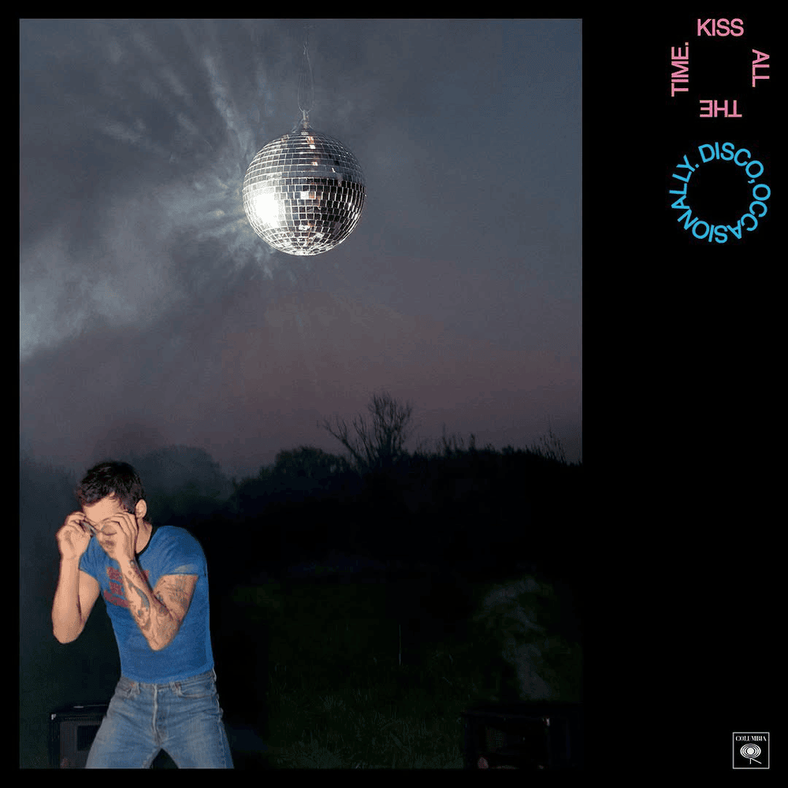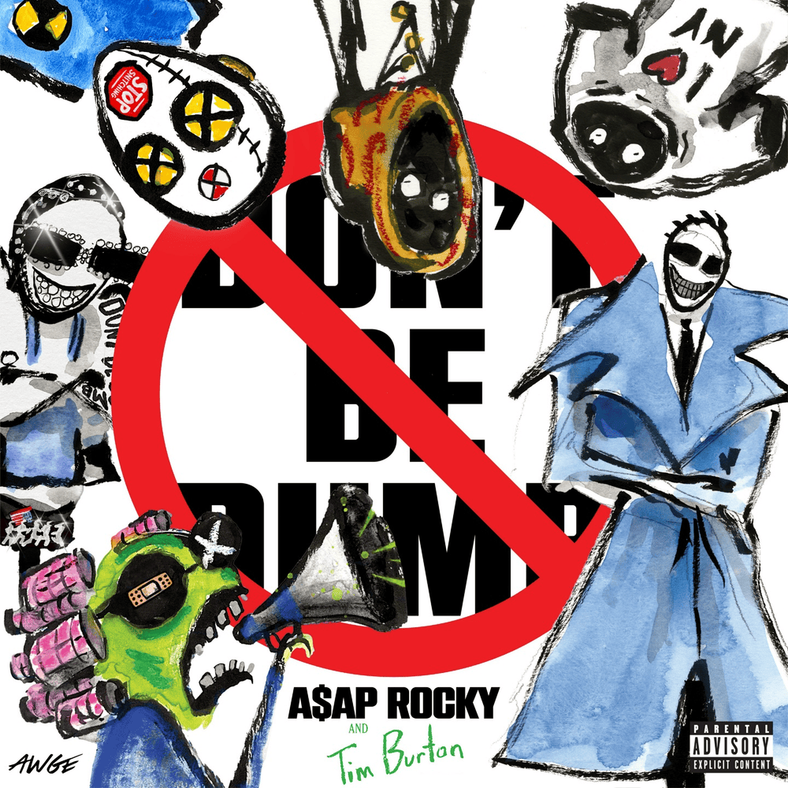On Aug. 18, Hozier released his third full-length album, titled “Unreal Unearth.” The album, with a runtime of one hour and two minutes, peaked at No. 1 on the U.K. album chart and ranked at or near No. 1 on many U.S. charts.
Hozier, most well-known for his 2014 mega-hit “Take Me To Church,” is a 33-year-old Irish singer-songwriter. His genre can be best described as a fusion between folk music, R&B and rock music — though he regularly departs from those confines.
Hozier said in an interview with the Grammys that “Unreal Unearth” is about his experience with the pandemic, and draws from themes of heartbreak, love and endings.
Hozier also said he drew inspiration from the 14th century tale “Inferno” from Dante’s “Divine Comedy.” The poem is about Dante’s journey through the nine circles of hell.
And that’s just what this album is: a journey.
Get The Daily Illini in your inbox!
De Selby (Part 1)
The album begins with haunting, calming acoustic guitar. Hozier enters with gentle, loving vocals. He sings in English, then in Irish. Layered vocals build with instrumentals and background voices join.
It feels like the listener is descending into something — perhaps hell. The track ending, like several parts of this album, is reminiscent of a movie soundtrack. The instrumental fades and transitions smoothly to the next track.
“De Selby (Part 1)” is enjoyable, but in its mellowness, feels like a weak opening. However, it does sonically resemble much of “Unreal Unearth.”
De Selby (Part 2)
This song is immediately upbeat, exciting and attention-catching. A sexy guitar riff powers the poppy track, which features a ridiculously catchy refrain.
Though the track is heavily produced and departs from the acoustic-band-in-a-studio feeling that some of Hozier’s older tracks provide, it’s hard to be upset when this song is just so stupidly catchy.
Both of the “De Selby” tracks serve as an introduction to the album and set the scene for what’s to come.
First Time
This track returns to a more acoustic vibe and is a pleasant listen, though nothing special.
The change in genre is a little abrupt, going from the upbeat peppiness of “De Selby (Part 2)” to this track’s calmer, acoustic vibe.
“First Time” is reminiscent of something one could hear from Hozier’s self-titled 2014 debut album.
Francesca
This track, loosely based on the story of Francesca from “Inferno,” is the best song on the album.
Hozier gives a deeply emotional performance and sounds like he’s in agony at times. Hozier sings of a chaotic relationship that has ended and how he would repeat the entire process over again.
“Though my heart would break, I’d tell them, ‘Put me back in it’/ Darling, I would do it again,” he sings.
The refrain of the track is a little noisier than usual for Hozier — heavy guitars back his belting vocals. It adds to the song’s feeling of overwhelming pain.
In the lyrics, Hozier continually emphasizes the magnitude of the love that this pair shared.
“Heaven is not fit to house a love like you and I,” he repeats as the song winds down.
I, Carrion (Icarion)
This track is cute, acoustic and mellow — a much needed wind-down from the emotional intensity of “Francesca.” The song doesn’t stand out as anything unique, but it’s a pleasant listen.
Eat Your Young
This track, which was the first single Hozier released from the album, returns to the poppy, catchy sound in “De Selby (Part 2).” The verses of “Eat Your Young” present a unique, refreshing rhythm with calculated pauses between words.
Unfortunately, “De Selby (Part 2)” stands out as the superior poppy “Unreal Unearth” track; “Eat Your Young” lacks personality and falls a little flat.
Damage Gets Done (feat. Brandi Carlile)
Hozier gets credit for trying something different on this track; it’s a song a 50-something-year-old white Christian mother might like.
It’s quite bright and poppy in an almost-country way, and the addition of Carlile’s voice creates beautiful harmonies that add much-needed color to the album.
That being said, “Damage Gets Done” is a bit of a hard sell. The bright, almost Christian rock-esque sound will throw some listeners off. It may even feel like an interruption to the dark, alternative sound of the rest of the album.
This track may stand better in isolation, as opposed to where it lives in “Unreal Unearth.”
Who We Are
This is another cute, heartwarming song, and the best of its type on the album. “Who We Are” is mellow, lovely and reminiscent of springtime. It’s also a much-needed return to Hozier’s older sound, something that has been lacking at times in this album.
The song begins with a simple piano progression and Hozier’s gentle vocals, and he belts beautifully during the refrain.
The instrumental break after the second refrain is a highlight of the track. Unique vocalization layers over strings, synthesizer, bass and percussion to create an ethereal sound. It’s quite magical.
The song flows noticeably better than many tracks on the album.
Son of Nyx
This track is seriously cool. “Son of Nyx” is an instrumental interlude, reminiscent of a movie score. Piano, strings and muffled vocals blend together to create an eerie, haunting and ethereal tune.
All Things End
This song is so, so good. Hozier combines his usual R&B rock sound with soul and gospel and wow, does it work.
“All Things End,” like much of the album, is about heartbreak. Though the subject matter is par for the course at this point, the musical presentation of the content makes this track stand out.
There’s a key change during the bridge and it’s absolutely incredible. Hozier launches back into the refrain after that, and it’s powerful. And good. Very, very good.
To Someone From A Warm Climate (Uiscefhuaraithe)
This track, like “All Things End,” borrows from gospel and soul, yet also highlights Hozier’s Irish identity with his use of Irish words in both the song title and the lyrics.
The lyrics of this song are also especially artful.
“And I wish I could say/ That the river of my arms have found the ocean,” Hozier sings.
The implication of his body to a force of nature is something Hozier does often, and it reflects an overall theme of this album: a love that’s bigger than two people. A love so all-encompassing that it consumes them and becomes something larger. It makes Hozier’s love as big as a river and his partner’s love the ocean that his rivers lead to.
Butchered Tongue
The subject matter of this song is what makes it. Sonically, it’s no different than the rest of the album, but the topics depart from the common themes of love and heartbreak.
In “Butchered Tongue,” Hozier sings about the negative impacts of colonization and the violence that natives experience.
“But feel at home, hearing a music that few still understand/ A butchered tongue still singin’ here above the ground/ The ears were chopped from young men if the pitch cap didn’t kill them/ They are buried without scalp in the shattered bedrock of our home,” Hozier sings.
Hozier sings of native erasure and music in a dying language — a butchered tongue. He sings of how the British punished the Irish during Ireland’s Wexford Rebellion in 1798 and mentions by name many indigenous locations he’s visited.
The topic of this song is heavy, but Hozier presents the message beautifully.
Anything But
This track is another vibe shift. It’s quite happy-sounding and upbeat, and is almost reminiscent of a Harry Styles song, which is a surprise. It feels like sunshine and dancing and summer.
This track is fun, happy and cute. It may easily become a favorite.
Abstract (Psychopomp)
A beautiful track, “Abstract (Psychopomp)” is a standout within the cloudy water of this album.
Many tracks follow a formula: mellow verses and belty refrains with heavy production. This formula is a little tiring at this point in the album, but “Abstract (Psychopomp)” does it incredibly well. It feels more balanced than the other tracks, like maybe this one was written before the formula was beaten to death.
Hozier’s vocals are the best part of this track — he is ridiculously talented. “Abstract (Psychopomp)” is very enjoyable and a highlight of the latter half of “Unreal Unearth.”
Unknown / Nth
This track has been previously reviewed, though it aged very well.
“Unknown / Nth” is a relatively mellow, stripped down track. To some, it will be boring. To others, it will be enchanting.
Much of the song consists of Hozier and an electric guitar, which is a very, very nice breath of fresh air after many heavily produced songs. The guitar riff is melodic and strangely comforting and Hozier’s gentle melody feels almost like a lullaby.
And this song, unlike many tracks on this album, doesn’t force its wall of sound. The bridge — which also boasts hard-hitting lyrics — is welcome. It’s beautiful. It’s wonderful. And it’s a good lead into the intensity of “First Light,” the album’s final track.
First Light
“First Light” is an impressive ending track and the second best song on “Unreal Unearth.” It begins with a driving acoustic guitar riff and an angelic-sounding choir, then Hozier enters with an enchanting melody. The track feels like it’s pulling the listener in and taking them along on a journey.
“First Light,” for the first time in a while, reminds the listener that this is an album themed around Dante’s “Inferno.” The song feels like an ascension to Heaven. The song title is an obvious allusion to this idea, leaving the darkness of Hell and seeing the sun again.
This song does what the entire album was trying to do. Hozier slams the listener with an energetic, heavily produced post-refrain. It’s perfect and jaw-dropping. The listener experiences the glory and joy of leaving misery and darkness and returning to love and light.
“First Light” is magnificent and magical. It’s an amalgamation of every wonderful thing Hozier does with his songwriting. It’s a journey. Hozier, in “Unreal Unearth,” led listeners on a journey.
Final thoughts
Standout tracks from this 16-song album include “De Selby (Part 2),” “Francesca,” “Who We Are,” “All Things End,” “Butchered Tongue” and “First Light.” All of them do something better than any other track on the album.
One of this album’s fatal flaws is the overabundance of refrains and bridges that blast the listener with sound. It hurts the album.
Hozier’s older albums felt more authentic. “Unreal Unearth” feels overproduced. It lacks the heart and soul of Hozier’s first two albums. Those albums — especially the first one — felt so deeply personal to Hozier that it bled into every single facet of the album. His lyrics, his vocals, the guitar, the percussion — everything.
In “Unreal Unearth,” Hozier is still there, but it feels like he’s just the one singing and there’s some other force making the music. It’s a tangible difference. This album feels less personal.
In his past releases, Hozier’s “slam-the-listener-with-sound” idea was wondrous and magical. But now, it feels stale. It’s lost some of its impact.
Though Hozier explored several different sounds throughout the album, he couldn’t — or didn’t want to — shake his song structure formula. He should have.
That being said, “Unreal Unearth” is a good album. Hozier is a good musician who pours his heart into everything he makes. The theming and storyline of the album are genius, and Hozier’s lyricism and vocals continue to show his talent.







